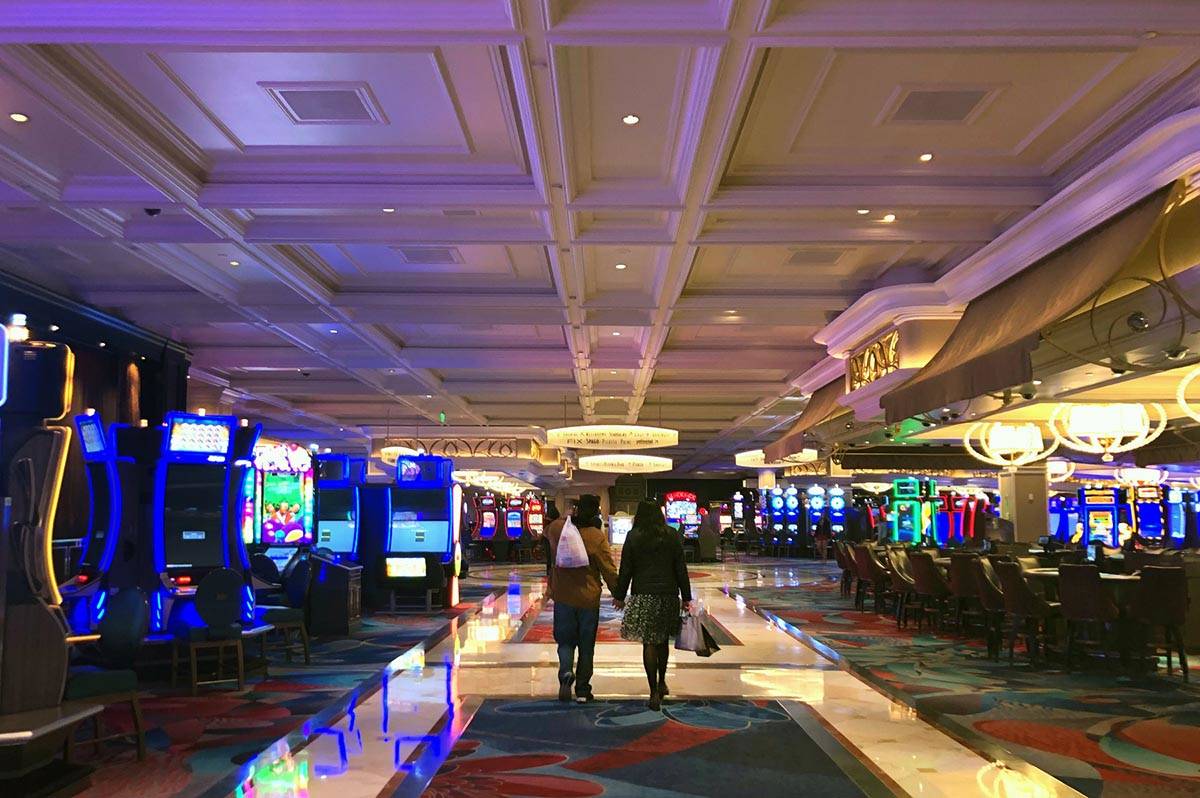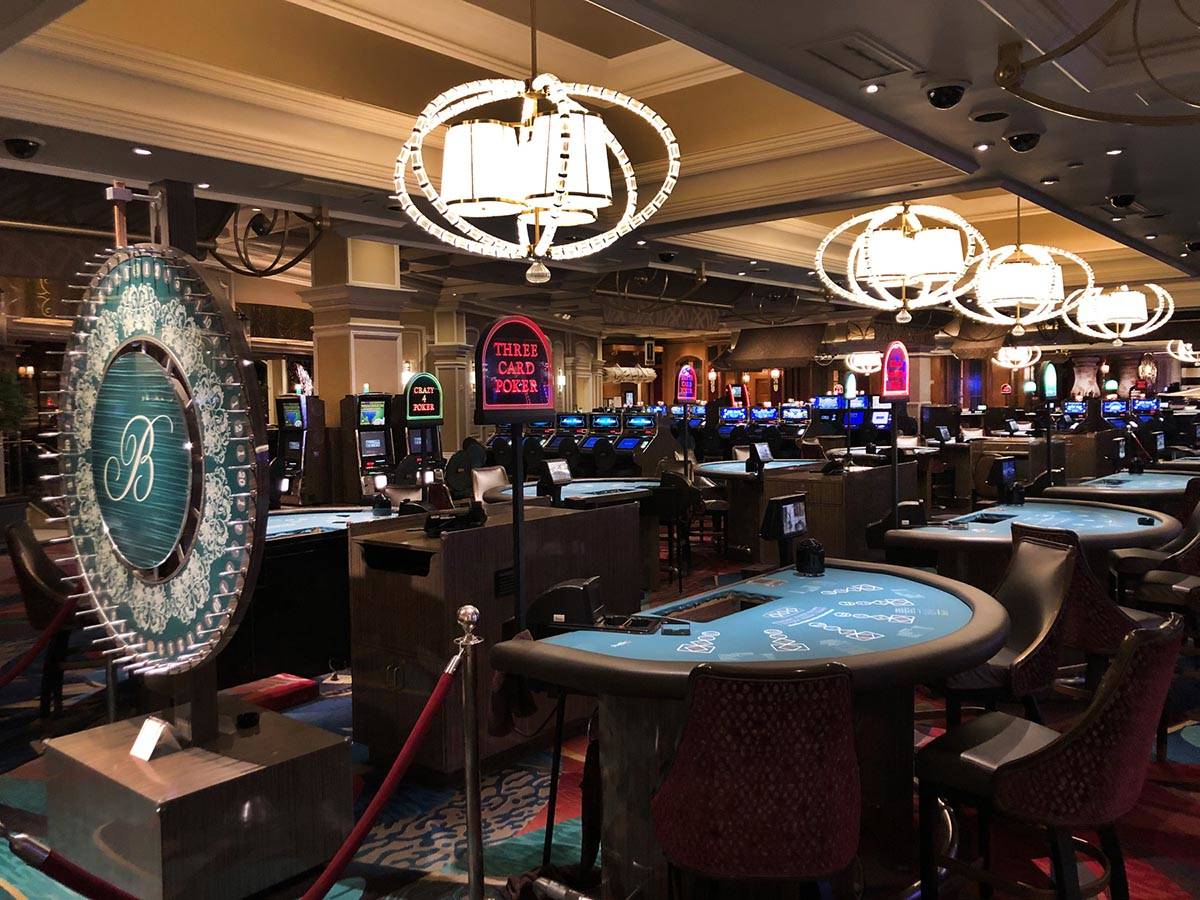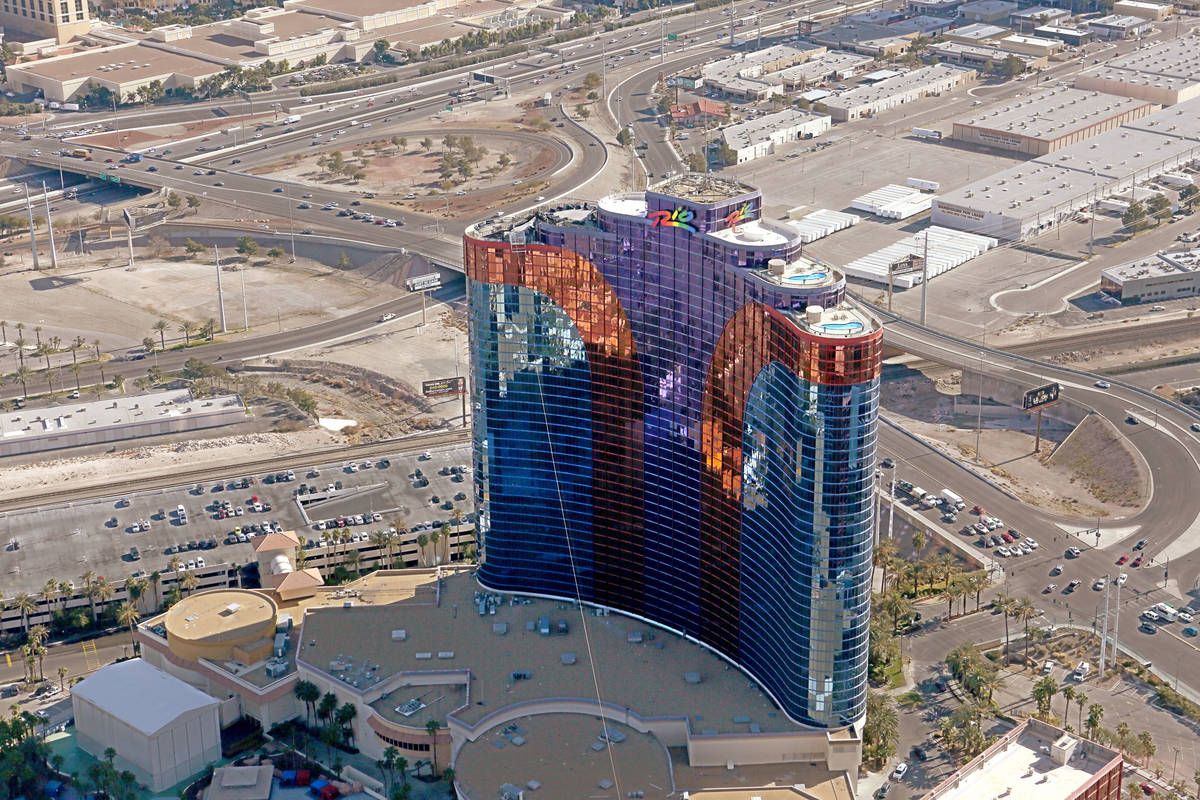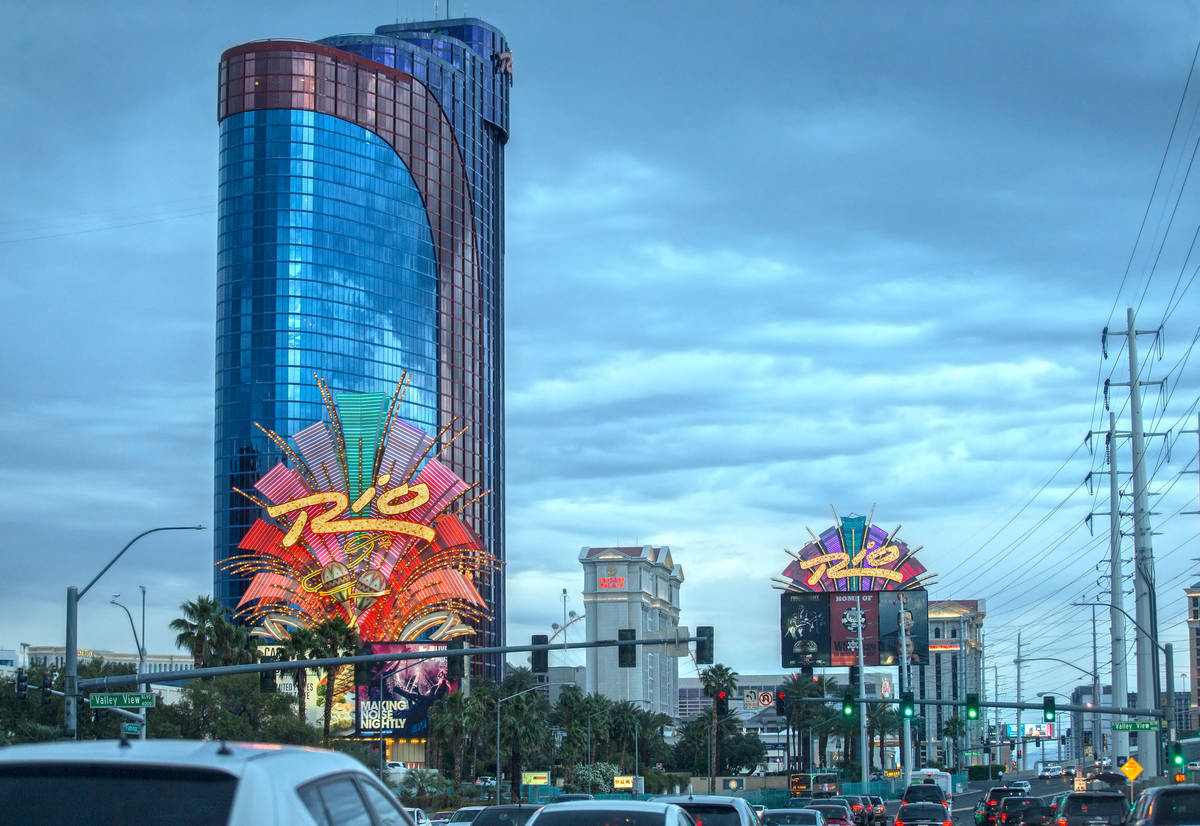Some Las Vegas casinos have to make rent during shutdown, too
Layoffs have taken a hold of Las Vegas’ hospitality industry, leaving many employees wondering if they’ll be able to afford rent.
As it turns out, some casino operators may be facing the same issue.
Last year, Strip operators began entering sale-leaseback deals for their properties, selling off the land to real estate investment trusts while maintaining control of the resort’s operations.
It’s a fairly new business model in the casino industry — the first gaming REIT was formed in 2012. More have been formed in recent years as sale-leasebacks have become an increasingly popular way for casino operators to shore up capital.
But now that casinos have been forced to shut down for at least 30 days amid the coronavirus outbreak, they suddenly may have zero income to pay some expenses, such as rent.
The gaming industry’s sale-leaseback model “hasn’t been tested in a downturn,” said Union Gaming analyst John DeCree. “There are lots of unanswered questions and lack of precedent as to what will happen.”
‘Zero-revenue, full-cost’ scenario
There are currently four REITs operating in the Las Vegas gaming space: Gaming & Leisure Properties, VICI, Blackstone Real Estate Income Trust and MGM Growth Properties.
The latter two jumped into a number of Las Vegas assets in the last few months.
In November, Blackstone purchased Bellagio’s real estate for $4.2 billion and leased it back for an initial annual rent of $245 million. Two months later, it agreed to form a joint venture with MGM Resorts International’s REIT, MGM Growth Properties, to acquire the MGM Grand and Mandalay Bay in a $4.6 billion deal and lease them back to MGM Resorts for an initial annual rent of $292 million combined.
Aaron Fischer, chief strategy officer at MGM Resorts, told the Las Vegas Review-Journal that the company is not worried about paying its rent.
MGM Resorts has about $3.9 billion of liquidity, Fischer said, and it is expecting $8.2 billion in net cash proceeds from deals it entered last year.
“We still have some debt, but we feel like the company’s got a very strong liquidity position,” he said.
A spokeswoman for Blackstone declined to comment.
Caesars Entertainment Corp. sold the Rio to New York developer Eric Birnbaum for more than $516 million and leased it back for at least two years for $45 million in annual rent.
Caesars spokesman Rich Broome declined a request for comment. Birnbaum did not immediately respond to a request for comment.
Deutsche Bank analyst Carlo Santarelli said there are two benefits for casinos that sell their real estate to investment trusts: It has an added expense obligation in perpetuity, and the deal provides “considerable, upfront cash.”
For instance, Jim Murren, MGM Resorts’ outgoing CEO, has said the company would use the cash from its deal to help build an integrated resort in Japan.
But all that cash could come in handy as properties are are looking at no income for 30 days.
Santarelli said he believes MGM is “well positioned, from a liquidity perspective,” during the shutdown.
A 2019 report from Green Street Advisors consulting group found the tenants for VICI, MGM Growth Properties and Gaming & Leisure Properties had a rent coverage ratio of 3.9, meaning they had almost $4 in cash to cover every dollar of rent owed.
But Alexi Panagiotakopoulos, sponsor of NETLease Corporate Real Estate, pointed out that those numbers were taken when the companies were in good economic standing, before a pandemic swept the nation.
“Nobody stress tests what happens if a property doesn’t have customers,” he said. “That’s a zero-revenue, full-cost scenario.”
DeCree said the while leases don’t have real maturity like conventional debt, they “do add a considerable fixed financial obligation” for operators.
He said the bigger issue for operators amid the shutdown is cash burn.
They “have large cost structures,” he said. “Unlike a recession where there is still some demand, this lockdown comes with no revenue.”
Santarelli said it’s highly unlikely a gaming REIT tenant would be unable to make rent, but if that were to occur, the REIT would seize control of the property and find another operator that could run it.
“We do not believe this is a reasonable outcome to expect at this time, even when stress tested for elongated closures,” Santarelli said. “The ramifications of the closures are significant … (but) there is plenty of capital to assure the rent payments are made, even in the event the closures last for longer than expected.”
But Panagiotakopoulos said the virus outbreak is an unprecedented issue, and rent payments — or lack thereof — are “absolutely” a discussion.
It’s “not completely written off,” he said.
While the virus outbreak is hurting nearly every business in the U.S. tourism sector, Santarelli said the crisis could give gaming REITs a chance to prove to investors how strong an investment they can be.
“We have always felt that it would take a U.S. recession (or) scare for investors … to recognize the stability of the cash flows of the gaming triple net REIT complex,” he said. “While the current state of the industry is perhaps as great a test as we will see, we believe the stability of the rent will in fact be shown.”
Santarelli updated his recommendation for MGP shares from hold to buy on March 13, saying he’s sure gaming REITs will see “a swift recovery to higher highs” at some point.
Panagiotakopoulos was also optimistic for gaming REITs, and the gaming industry as a whole.
“Vegas will be hopping again,” he said, though he admitted he’s not sure when. “Will there be losses? Absolutely. … But we’ll get through this.”
^
Contact Bailey Schulz at bschulz@reviewjournal.com or 702-383-0233. Follow @bailey_schulz on Twitter.
There are currently four gaming real estate investment trusts in the Las Vegas market:
Blackstone Real Estate Income Trust:
— Blackstone owns Bellagio's real estate and The Cosmopolitan of Las Vegas. In January, Blackstone agreed to form a joint venture with MGM Growth Properties to acquire MGM Grand and Mandalay Bay.
MGM Growth Properties:
— MGP's Las Vegas assets include Mandalay Bay, The Mirage, Park MGM, Luxor, New York-New York, Excalibur and The Park
VICI:
— Caesar Entertainment Corp.'s spinoff VICI has 28 properties in its portfolio, including Caesars Palace and Harrah's in Las Vegas.
Gaming & Leisure Properties:
— GLPI has 44 gaming and related facilities in its portfolio across 16 states, including Penn National Gaming's M Resort in Henderson.





















